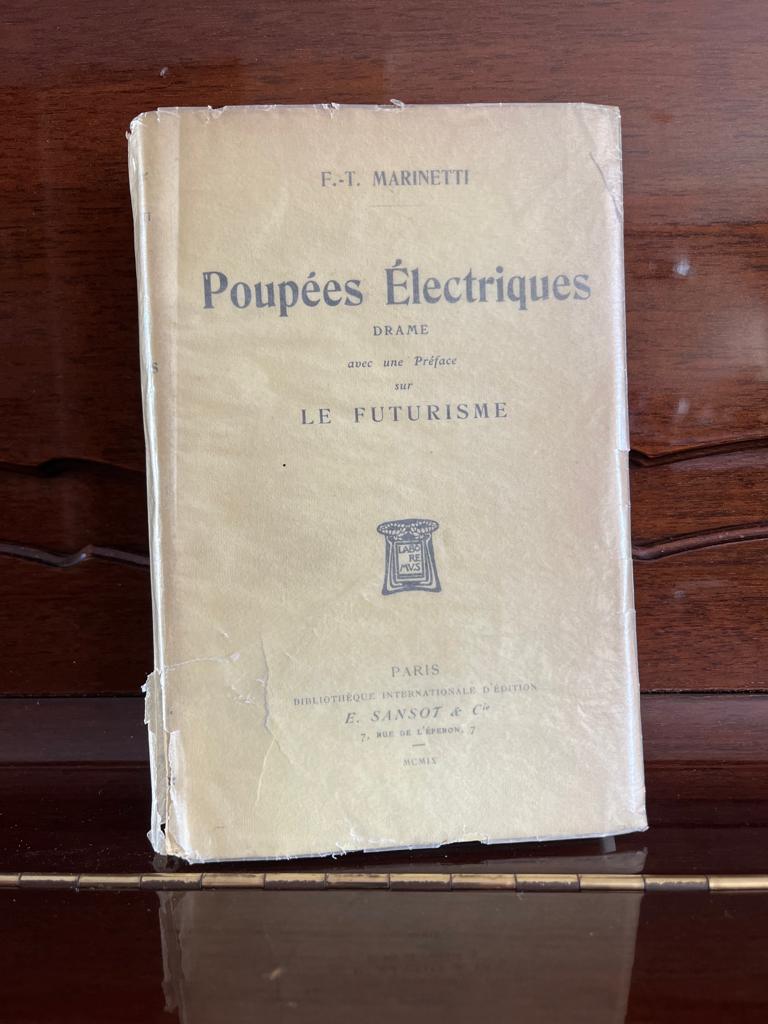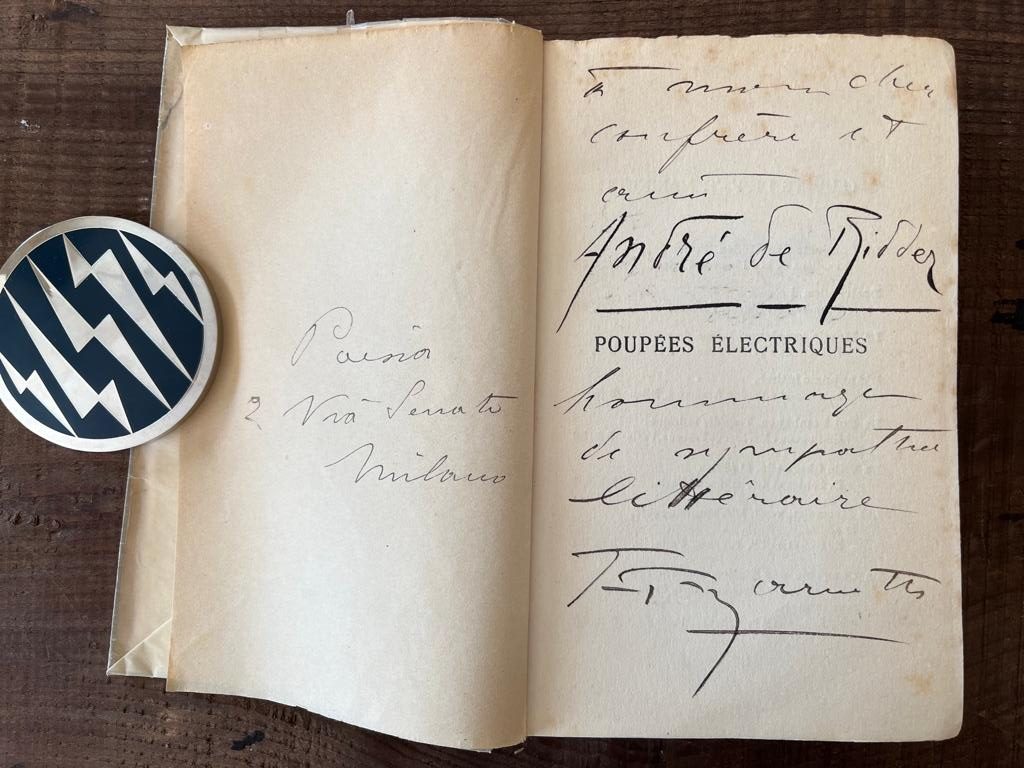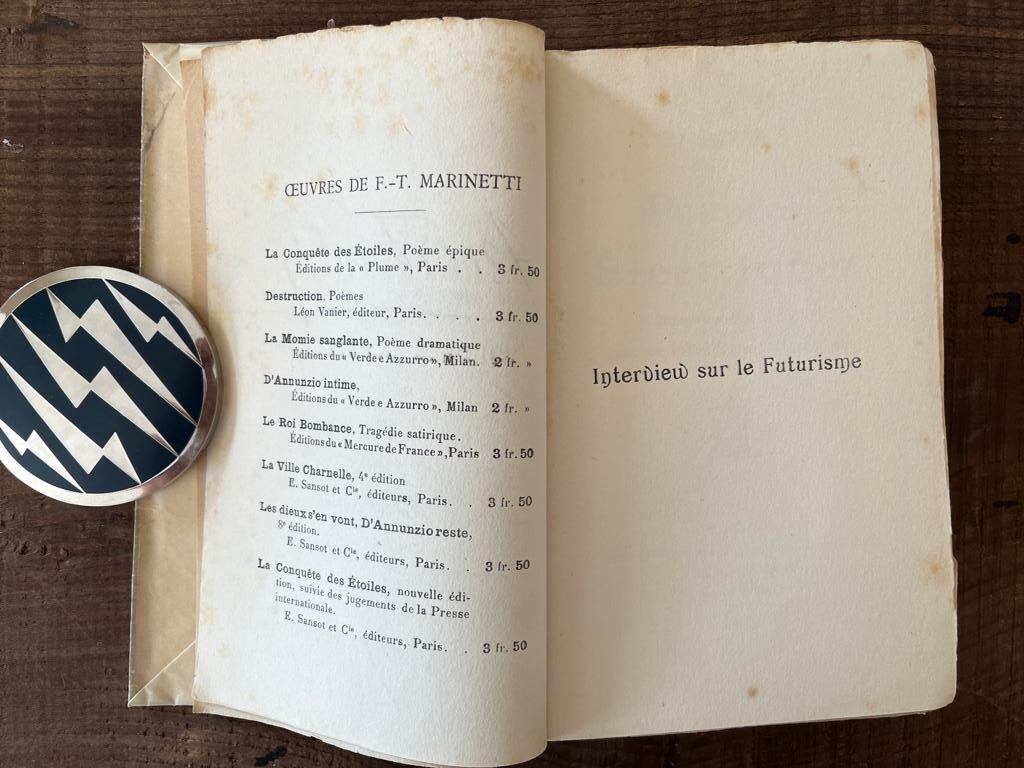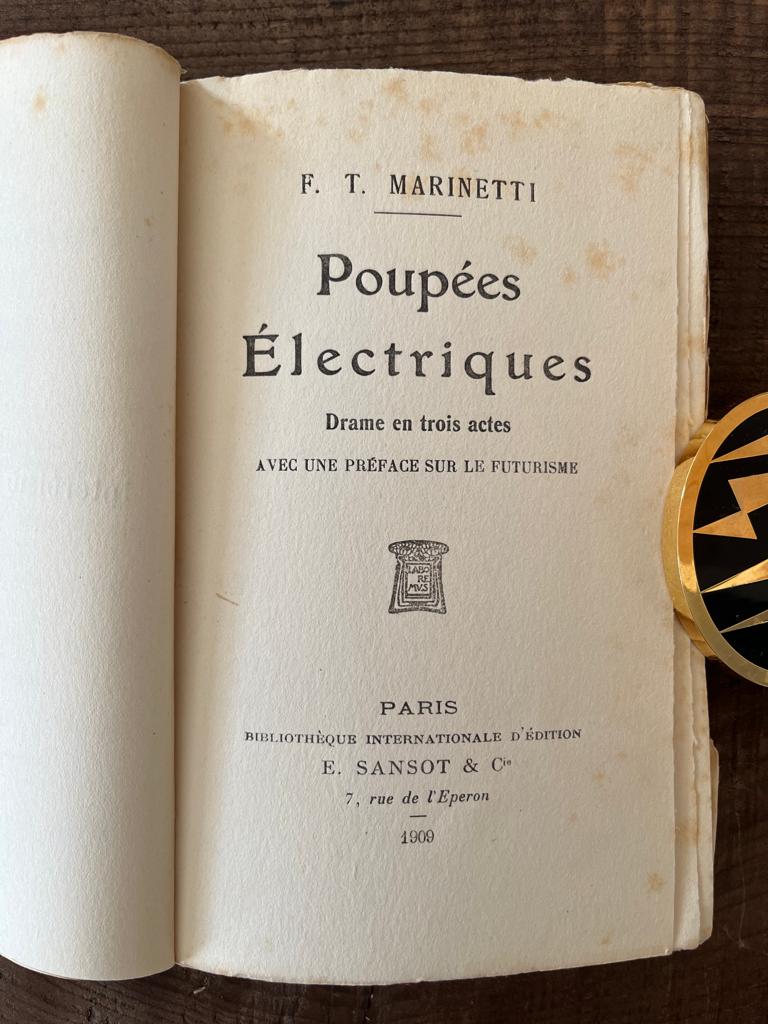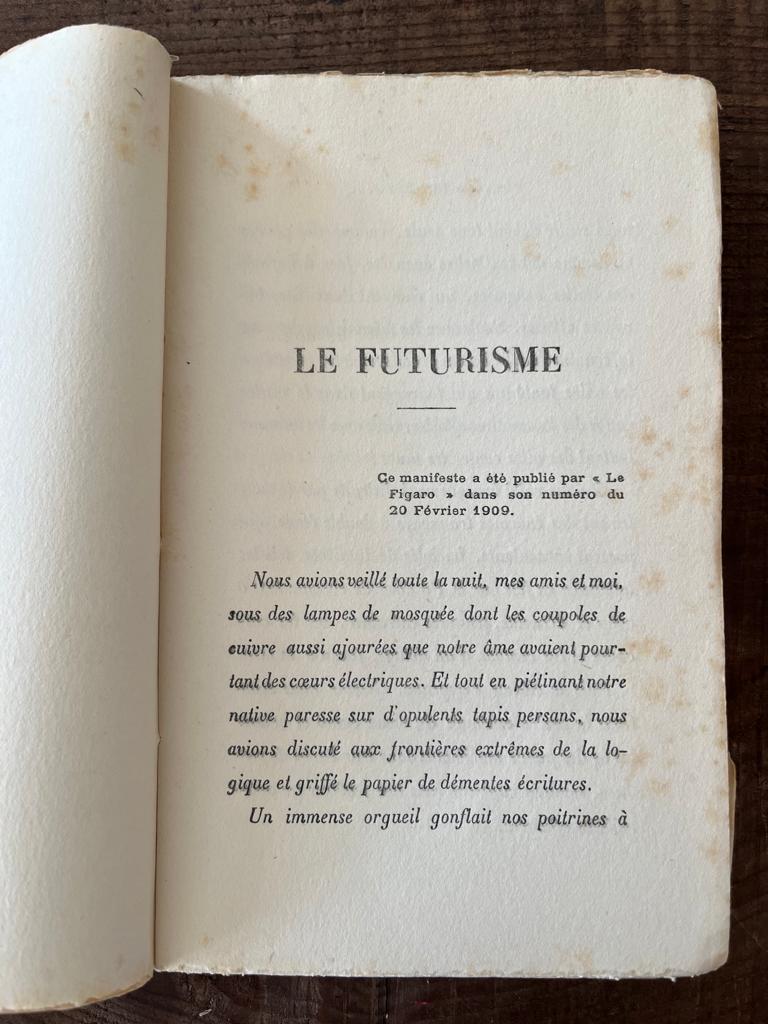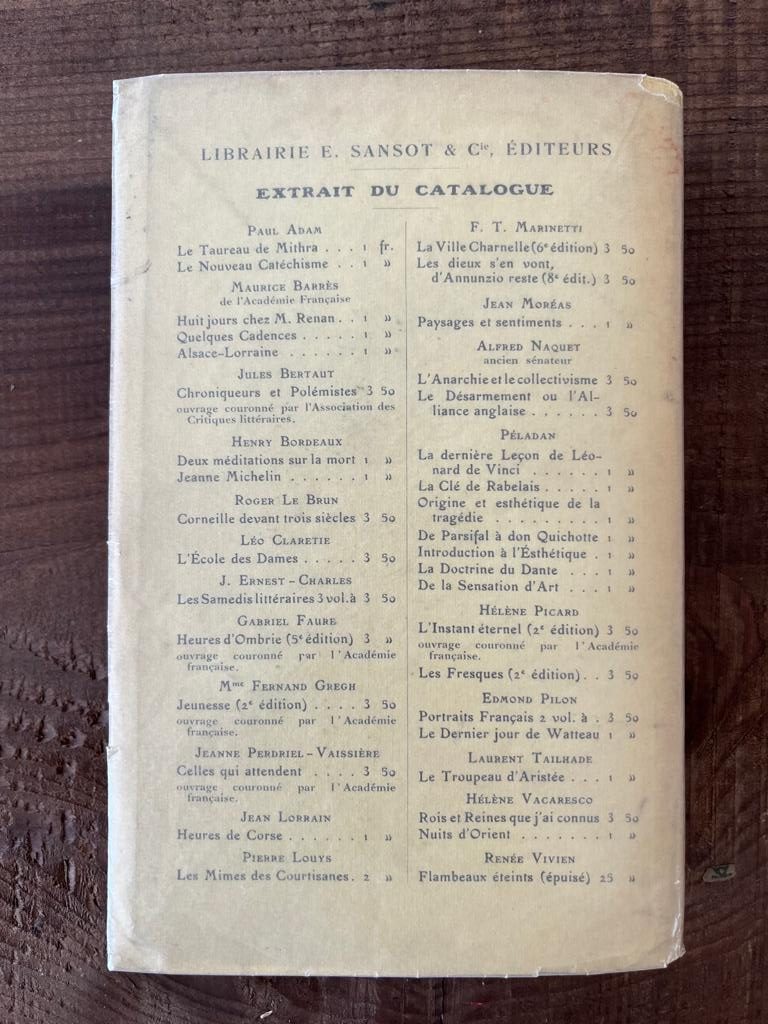1909, Filippo Tommaso Marinetti, Poupées électriques, Futurism, SIGNED, First Edition
370.00€
VERY SCARCE!
Out of stock
Description
Filippo Tommaso Marinetti
Poupées électriques - Electric Dolls
Drame avec une Preface sur Le Futurisme
First Edition
Paris, Bibliotheque international edition E. Sansot, 1909
Signed and dedicated by the author!
19x12cm 192 p + 1 sheet
Brochure Cut and paper slightly foxed at the beginning and end as well as
occasionally inside, cover slightly rubbed
Book covered with protection folio!
First French edition, only appeared in this completeness in Italian in 1920
Contains, alongside the drama Poupees Electriques,
a complete French version of
the Manifesto of Futurism
with reference to its publication in Figaro of February 20, 1909
Included is also a full-page dedication by Marinetti to Andre de Ridder, signed by Marinetti
and with an Addendum on the opposite page: "Poesia, 2 Via Senato, Milano".
It cannot be said with certainty who the dedication is addressed to,
but it will most probably
be the Belgian art and literary historian Andre de Ridder (1888–1961),
who was already publishing at that time.
Filippo Tommaso Emilio Marinetti (1876 – 1944) was an Italian poet, editor, art theorist,
and founder of the Futurist movement. He was associated with the utopian and Symbolist
artistic and literary community Abbaye de Créteil between 1907 and 1908. Marinetti is best
known as the author of the first Futurist Manifesto, which was written and published in
1909, and as a co-author of the Fascist Manifesto, in 1919. His drama La donna è mobile
(Poupées électriques), first presented in Turin, was not successful either. Nowadays, the
play is remembered through a later version, named Elettricità sessuale (Sexual Electricity),
and mainly for the appearance onstage of humanoid automatons, ten years before the Czech
writer Karel Capek invented the term robot.
Additional information
| Languages | French |
|---|
You may also like…
-

1946, Nikos Kazantzakis, Kapodistrias, First Edition, First Printing, Signed by author
490.00€ Read more -

Odysseas Elytis, O Ilios o Iliatoras, The Sovereign Sun, Signed and dedicated by author, 1971, First Edition, Nobel Laureate, Nanos Valaoritis
350.00€ Read more -

Nikos Kazantzakis, Ioulianos (Julian the Apostate), Signed by author, 1945, First Edition
690.00€ Read more

